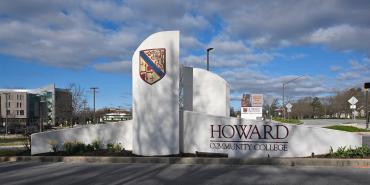Faculty at two community colleges overwhelmingly filed for official union recognition to join the American Association of University Professors, the AFT and AFT-Maryland, swelling union ranks by 270 members. Eighty percent of the faculty at Howard Community College—with its total of 170 faculty—and Frederick Community College—with 100 faculty—petitioned the state to recognize their union on Aug. 21.
“We are excited to welcome faculty from Howard Community College and Frederick Community College into the AFT-Maryland labor family,” says AFT-Maryland President Kenya Campbell. “Workers see a union as the way to have voice, which is why labor power has been surging across the nation.”
The move is especially significant as the first organizing effort since state legislation paved the way for collective bargaining at Maryland’s 16 community colleges. The new members unite as United Academics of Maryland Community Colleges, AFT-AAUP; the union will be officially certified after 30 days.
Community colleges play a pivotal role in higher education. As more affordable, more accessible institutions, they educate 41 percent of all college students in the United States and typically welcome more Black, Indigenous, Latinx and other students who are underrepresented in colleges and universities. Faculty and staff at these colleges face the same challenges as their peers at four-year colleges, but the problems are often magnified, with lower pay and little respect for their work.
At Howard Community College, faculty have created an award-winning institution, but organizers say they are under constant threat of dismissal and are continually disrespected by administrators. Longtime educators, who once relished working at HCC, feel their dedication is being used against them and are told by their supervisors that if they are unhappy “there are plenty of exit signs.”
HCC English instructor Tim Bruno says faculty deserve a seat at the table. “I’m for unionizing because faculty know what’s best for our students, our schools and higher education,” he says. “A union and a contract will finally give us our say. Administrators tell us how to do our jobs without knowing their way around a classroom. But when it comes to our students and their learning, I trust my colleagues. I trust faculty.”
Frederick Community College faculty have organized for respect—for the profession, for their students and for their dedication to learning. They have been disrespected by ever-increasing workloads, abusive management, unclear and inconsistent policies, and stagnant, inadequate compensation. In elevating their collective voice, they plan to address these issues and others.
“The history of the institution shows that no existing organization, including FCC’s board of trustees and various state and regional accreditation organizations, will protect faculty and other employees from abusive administrators,” says Greg Coldren, an FCC math faculty member. “The solidarity and power we are creating with our union will ensure our protection.”
In addition to the new United Academics of Maryland Community Colleges full-time faculty at Montgomery County Community College are also affiliated with AAUP-AFT.
“Faculty at community colleges across Maryland are public employees engaged in the essential work of preparing the bright minds of today to confront the challenges of tomorrow,” says AFT-Maryland’s Kenya Campbell. “Workers all over the United States see the value of collective bargaining and worker solidarity, and community college faculty are no different.”
“The freedom to teach and to learn, the freedom to research and the freedom to be economically secure are at the center of these workers’ fight,” says AFT President Randi Weingarten. “I am so proud of the Frederick and Howard community college faculty who joined together to help their students and bargain the conditions and wages they need and deserve.”
“With this important step, the faculty at these two outstanding community colleges will have a stronger collective voice to promote the core academic mission, to demand the respect they deserve, and to advocate for policies to ensure their institutions are the best they can be,” says AAUP President Irene Mulvey.
“Higher ed faculty want unions—and the more workers who are organized, the more students see that respect and voice leads to greater opportunity, that’s the way more families have access to the middle class,” Weingarten says. “That’s why it is such a hot labor summer.”
[Virginia Myers and AFT Communications staff]

